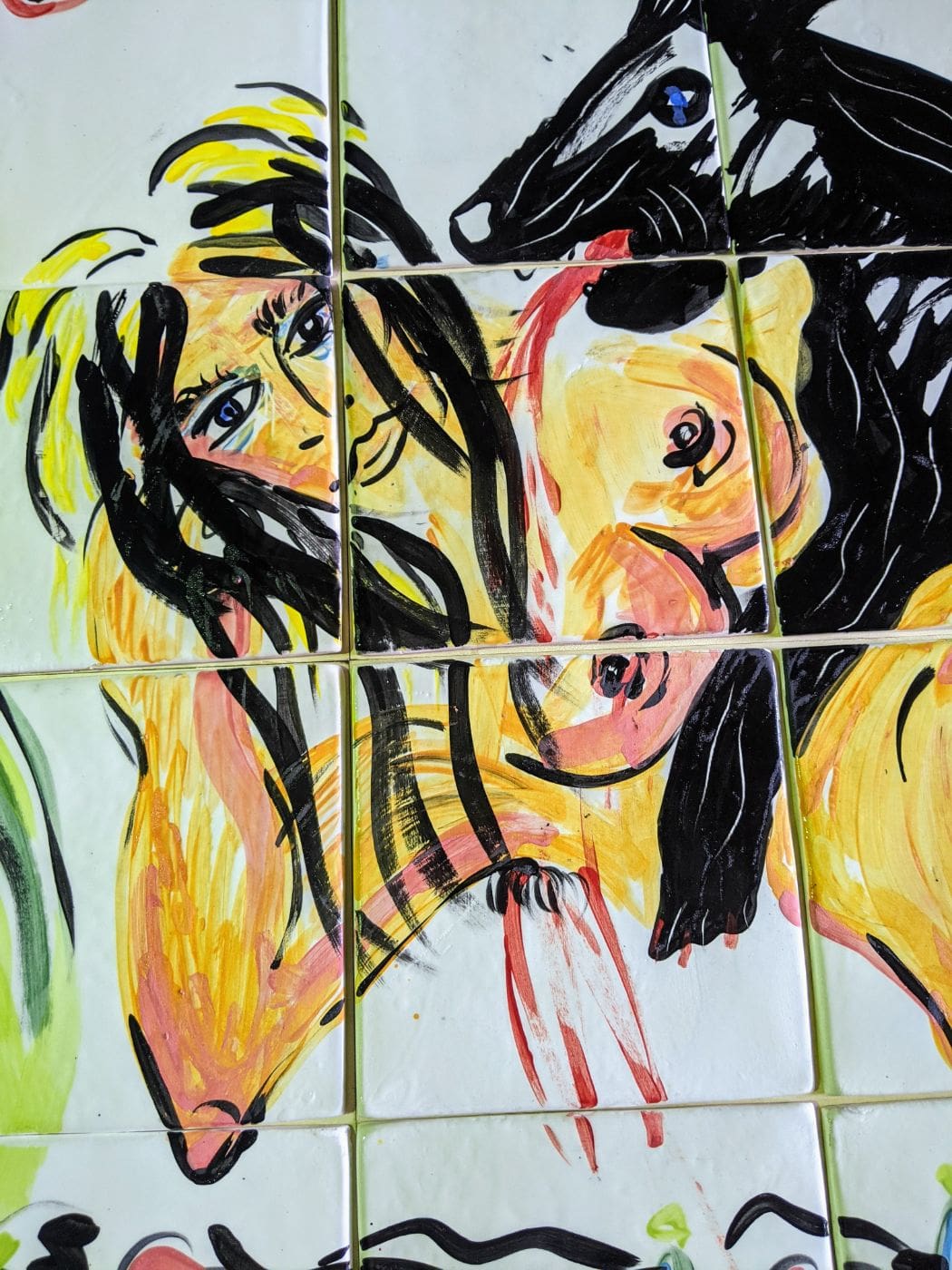Akrivi Kaklamani
Kalypso (fem.) / GR. MYTHOL. / A nymph in Ancient Greek Mythology. Lived on Ogygia island, where she kept Odysseus, despite his will, for seven years. Her name means to cover, to hide or to mislead. In another version, Kalypso not only convinced Odysseus to stay with her but also took it upon her to inform Penelope on how things had turned out. Penelope never replied. In contrast, she continued her correspondence with Odysseus to their deep old age. In fact, it is said that this period was the best of their entire marriage: they shared mutual feelings of being held hostage, exchanging thoughts and experiences.
– translated by Panayotis Ioannidis
*
Was it on Ceuta, facing Gibraltar, or on Gozo next to Malta, that this seductive water nymph managed to hold the cunning man captive for seven Springs (and Autumns)? She also wove (as more famously did Odysseus’ wife, Penelope, on her own — their own — island, Ithaca), but it was her song that had lured him in the first place. She, however, failed to make him immortal and keep him as her husband — though she may have given birth to one or two sons by him after he had left, on Zeus’ orders. She did, nevertheless, not only give him provisions for his onwards journey, but helped him build his raft and dispensed advice on how to navigate by the stars. Quite a woman, whichever way you look at her.
Akrivi Kaklamani is interested in women, often as one half of a couple, and in the female condition — sometimes through the prism of mythology. Her unsentimental, dry style serves ideally the various subjects she picks to write on (as some sections of her first poetry book, Spoken water (Patakis, Athens, 2018), themselves proclaim: myths, paintings, other poets’ verses, the Bible, photographs — pre-existing works of art in general, from Cervantes and Goya, and Shakespeare to Bergman, passing through Puccini: Butterfly is serious. / Many butterflies are. // They fold their wings, forget old habits / and apply themselves to the idea of the nest. Her re-tellings and elaborations on given, even well known, stories, incorporate subtle new twists, and fresh, illuminating surprises often based on quiet understatement. The result, though often humorous, verges always towards the sombre, if not downright black — and this holds true even when she turns to modern-day or even confessional subject matter. What hides in darkness, you ask and / give names of flowers — they’ll be cut; thus starts a poem about — as the last verse reveals — a paedophile Orpheus.
Akrivi Kaklamani was born in 1966 in Athens, where she lives and works, after having studied Political Science. She obtained a distinction at both the First and Second “Mimis Souliotis” Creative Writing Competitions, in 2014 and 2016; those poems were later published in book form. But her poems were first printed in 2015 in the “Poiitiki” journal. The poem presented here appeared in “The Books’ Journal” (issue no. 122, September 2021).

Pictured: Evgenia Vereli's Dog&Woman, a set of glazed ceramic tiles from 2020, currently part of the exhibition Bodies in Motion at Alkinois Project Space. Read more about the exhibition here.
